'When I talk to my colleagues in the Railways, they say, 'aadmi toh bohot hai, lekin matlab ka aadmi ek bhi nahi hai (the Railways has a bloated workforce, but doesn't have employees with have the skillsets that matter)'.'

Swapnil Garg, a professor at IIM Indore, spent nearly two decades working for the Indian Railways handling ground operations, project and IT management, and training.
"We live in a world of IT (information technology), automation. So we should not be relying on human resources to do all these things. Things have to be automated and they have to be maintained by capable people," Professor Garg tells Prasanna D Zore/Rediff.com about the likely reasons for the horrific train accident in Odisha on June 2 that killed 288 people.
What could be the probable reasons for the Coromandel Express to ram into the goods train? Could it be due to human error or failure of signaling systems?
Let's assume, the Indian Railways run about 1,500 trains a day and every train must be passing through 100 stations. Multiply 1,500 by 100 stations and those are roughly the number of instances of track changes or signals which are given to trains on a given day.
We can't leave such complex and innumerable operations to humans; so it is imperative that such operations are carried out by (electronic/electro-mechanical) systems.
Indian Railways have always had very robust signaling systems; even when there were mechanical systems which were less complicated, safety could never be compromised. But when we look at the operations and maintenance together, that is when the problem will start occurring.
Remember that when you run 150,000 operations per day (that involve signaling systems) we cannot leave it to equipment failure or software error or any error for that matter to cause an accident.
The safety of our systems is extremely reliable, but then these systems are maintained by human beings. That is where the probability of error comes in.
They are trying to maintain the tracks, ensure that the trains keep running all the time. You require time, effort, knowledge; probably that is where something has gone wrong.
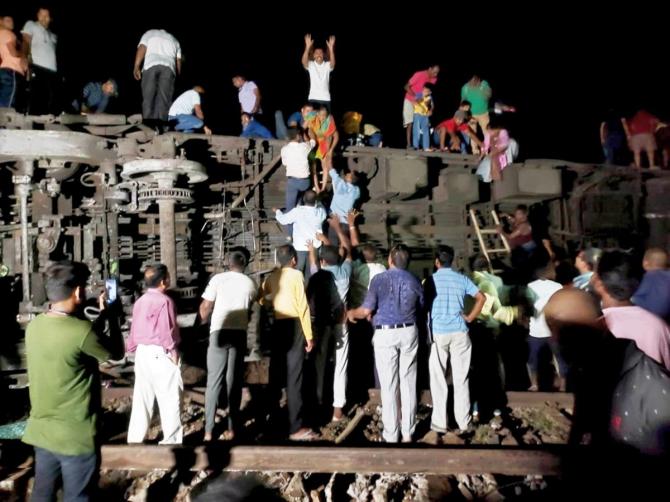
Does the Indian Railways, which as you said runs 1,500 trains every day, have adequate human resources to look after the maintenance, inspection and safety of the railway infrastructure?
We live in a world of IT (information technology), automation. So we should not be relying on human resources to do all these things. Things have to be automated and they have to be maintained by capable people.
So while I will not like to call out and say that we do not have enough number of people, I will definitely call out that we may not have the right kind of people for maintaining the advanced level of (IT) systems.
The training and upskilling at the individual level in the Indian Railways has definitely taken a big beating.
We (Indian Railways employees) are not very conversant with signaling technology, which has moved from manual interlocking to relay-type interlocking to solid state interlocking.
This means that a person who used to work with a chisel and hammer has now to work with sophisticated solid state, microprocessor-controlled signaling systems.
Can a man who worked with a chisel and hammer to repair a signal use the same knowledge to work on solid state interlocking signaling systems? It requires a totally different manpower, training and upskilling.
Somehow, we seem to be imposing the same standards onto sophisticated technical people also. The biggest talk in Indian Railways (when he was a part of it) was that you don't need advanced technologies.
If we have non-technical people, we will likely have them make large number of technical decisions impacting the reliability and safety of operations of Indian Railways.
According to me, not human resources, but quality of human resources is the problem. The number (of people employed by Indian Railways) is actually a non-issue.
There have been reports that the Indian Railways is understaffed, especially for maintenance and inspection of safety infrastructure.
It goes the other way around, actually. When I talk to my colleagues in the Railways, they say, 'aadmi toh bohot hai, lekin matlab ka aadmi ek bhi nahi hai (the Railways has a bloated workforce, but doesn't have employees with have the skillsets that matter).'
Lot of skilled employees are leaving the Indian Railways because they don't want to do hard labour.
What should be the top-most priorities of Indian Railways after the June 2 accident at Balasore?
The Indian Railways has done a phenomenal amount of work in the last decade or so. They have got their priorities right. They are investing huge amount of money into infrastructure. They are building technologies on their own or importing wherever required.
Personally, the first thing we need to ensure is that this derailment (the accident due to triple train collision that caused 288 deaths) should not come in the way of future progress.
Whenever such accidents have happened before, they have pushed (the Railways) reforms in total disarray.
We need to pull up all our resources, realign them to ensure that such an accident never ever happens again even while we continue to build new technologies to better safety and maintenance of railway infrastructure.
Most importantly, long-term alignments should not be sacrificed.
I have been with the Indian Railways for two decades and I can say that we do not know whether our priority is passenger or freight; we do not know if we are a charitable organisation or a profit organisation.
We are not making enough money so whatever we are doing is good. This has been the standard litany among top managers of Indian Railways. Over time, the government has given them money, technology, but (this government) now wants results.
The top priorities should be to bring about a cultural mindset in introducing new technologies, making money to fund its technological needs and hiring proper human resources.
The Indian Railways has not been able to fix its internal (administrative) systems; if fixed it will help you best maintain your financial resources, exploit and employ financial and human resources and make use of technology to improve safety.
For the last five years, the Indian Railways has not recruited any managers. Now, they only want to recruit managers and not technical people. These are strange decisions which have to be taken care of.
Why couldn't the Indian Railways hire managers for so many years?
They were really interested in hiring (managers and skilled staff), but it was bogged by too many political issues which are not being handled well; too many personal interests of people. That has to be killed if Indian Railways have to survive.
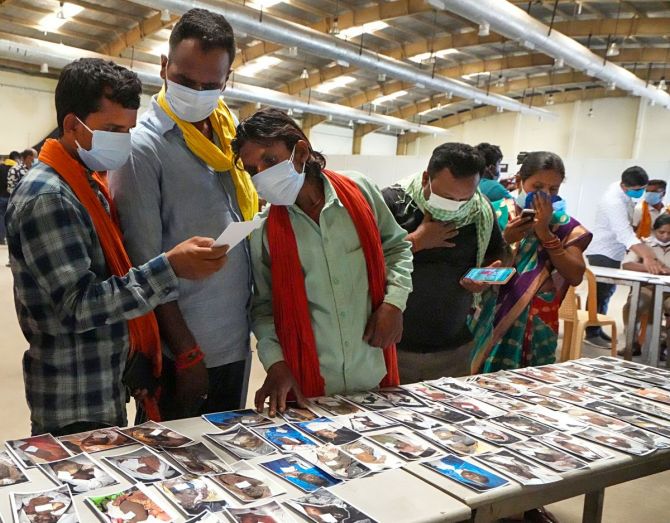
Could Kavach have prevented the accident that we witnessed at Balasore?
Kavach would have not played any role (in preventing the Balasore train accidents). Having Kavach installed (in the Coromandel Express that rammed into a goods train) would not have made an iota of difference.
Kavach simply ensures that trains brake automatically if they are heading towards each other on the same track; that too only if the distance between these two trains is about 400 metres or more. That is all that Kavach does.
Here (at Balasore where the Coromandel Express rammed into the goods train), the distance (between the two trains) was 50 metres when the Coromandel Express changed tracks from the main line to the loop line and hit the goods train. So, Kavach would have been of no help here.
While Kavach is a technological solution to prevent accidents between two trains heading towards each other on the same track, its implementation and execution brings in a much required change in our cultural mindset that shuns sophisticated technology.
Kavach encourages a mindset that gives paramount importance to safety of passengers and sends a message that their safety will not be compromised no matter the cost it involves.
Such cultural and behavioural changes (in Indian Railways) are the need of the times.
Installation of Kavach will change the cultural and behavioural mindset of those who don't want Indian Railways to become a modern, sophisticated service provider.
Installation of Kavach will all of a sudden force (the Indian Railways) to offer better training to all its faculty and staff. It will help induct new people into the system to maintain Kavach. It will expose them to new technology.
Kavach has its advantages, but -- directly looking at it -- it would not have prevented this accident.
There has been criticism of the Modi government that merging the Railways Budget with the Union Budget led to strangling of finances required by the Indian Railways, and that the government has cut the budget outlay for the Railways. Does this charge hold true?
It's completely wrong. The whole idea of merging the budget was that instead of the government having to explain the rationale behind every budgetary outlay for the Railways it could now just make a budgetary allocation and give the money to the Railways without taking into account whether the Railways is earning money or not earning money.
When it had a separate budget, the Indian Railways was accountable for the difference between its revenues and expenses. Merging the two budgets allowed the Indian Railways the opportunity it needed to focus on developing a robust and reliable infrastructure, bringing in modern technology, and make Railways a truly national organisation.
The merger of the Union Budget and Railways Budget is one of the best things to have happened to the Indian Railways because now you are able to spend so much more on building infrastructure that the country needs and not what some bureaucrat in the Indian Railways deemed what the country needs.
Earlier, when the Railways had a separate budget, its focus was on making profits; they would build infrastructure to make profits and not build infrastructure for the nation.

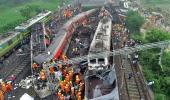
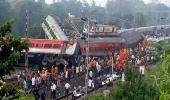





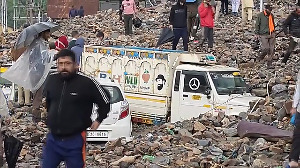

 © 2025
© 2025